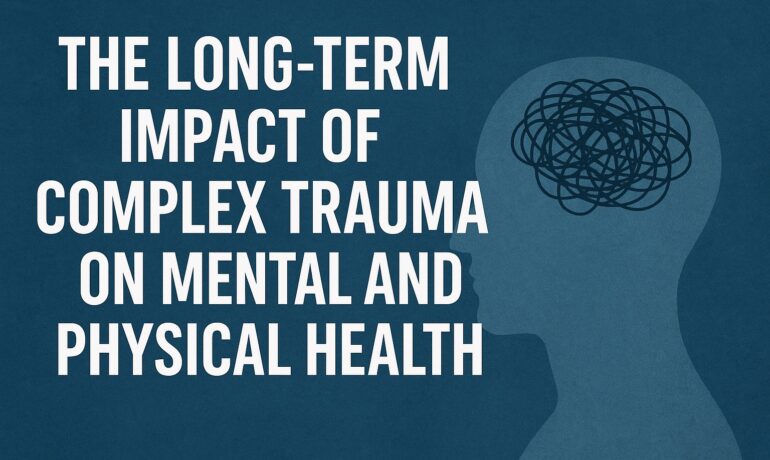Complex trauma refers to repeated exposure to distressing events such as abuse, neglect, or violence over a long period. Unlike single-incident trauma, it deeply influences both the mind and body. Understanding its long-term effects can help in seeking timely support and professional guidance.
What is Complex Trauma?
Definition: Ongoing traumatic experiences during childhood or adulthood.
Examples: Chronic abuse, domestic violence, or repeated exposure to high-stress environments.
Difference from PTSD: While PTSD often results from a single traumatic event, complex trauma stems from prolonged exposure.
Mental Health Impact of Complex Trauma
Anxiety Disorders – Persistent worry, fear, and hypervigilance affect daily life.
Depression – A deep sense of hopelessness, lack of motivation, and emotional numbness.
Dissociation – Detachment from reality as a coping mechanism.
Emotional Dysregulation – Difficulty managing anger, sadness, or stress.
Cognitive Disturbances – Trouble with concentration, memory, and decision-making.
Physical Health Consequences
Chronic Pain – Trauma can alter nervous system function, increasing pain sensitivity.
Cardiovascular Problems – Elevated stress hormones contribute to heart disease risk.
Digestive Disorders – Stress-related gut issues such as IBS are common.
Weakened Immunity – Prolonged stress reduces the body’s natural defense system.
Sleep Disturbances – Insomnia or restless sleep worsens both physical and mental health.
Behavioral and Social Effects
Difficulty maintaining relationships due to trust issues.
Substance use as a coping strategy.
Social withdrawal and isolation.
Struggles with workplace performance and stability.
Healing and Recovery Approaches
Trauma-Focused Therapy – Professional counseling, including CBT or EMDR.
Mind-Body Practices – Yoga, meditation, and mindfulness reduce stress response.
Healthy Lifestyle – Balanced diet, exercise, and sleep restoration.
Support Systems – Family, community groups, or professional healthcare guidance.
Why Early Intervention Matters
Addressing trauma early prevents worsening symptoms and promotes recovery. Long-term neglect of treatment increases the risk of chronic illness and mental health decline. Professional guidance is essential for healing.
Conclusion
Complex trauma leaves lasting marks on mental and physical well-being, but healing is possible with the right care and support. Early intervention significantly improves recovery outcomes.
If you or someone you know is struggling with trauma-related symptoms, consult our Dr Vinay Orthocare for comprehensive guidance and holistic treatment.

